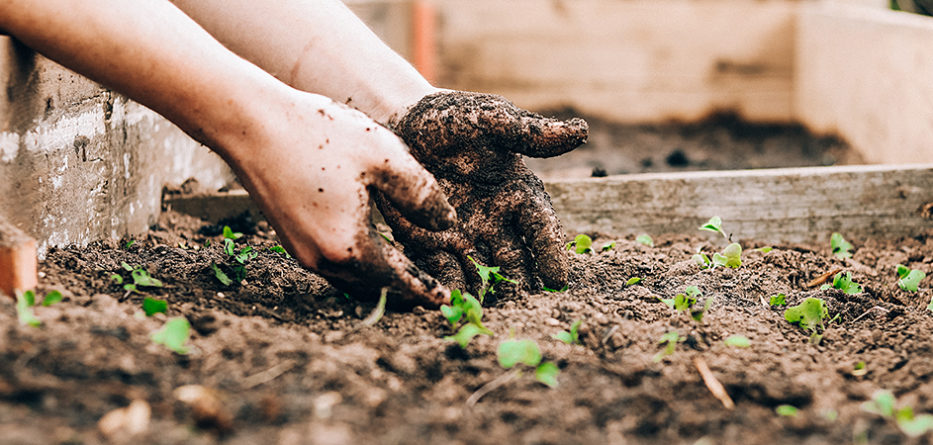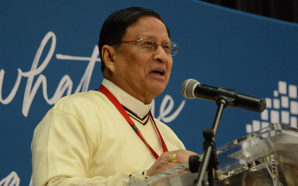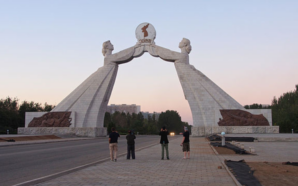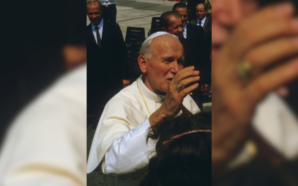Catholic Sisters want to play a concrete role in protecting people and communities affected by the climate crisis and by biodiversity loss. A series of “Sister-led dialogues” are bringing the Sisters and international players together in the hope of driving a movement that will help trigger a global movement transforming words into action.
Catholic sisters of the International Union of Superiors General (UISG) are busy gathering Sisters, momentum, ideas and commitments to protect and safeguard the planet in line with Pope Francis’ encyclical Laudato sì and the UN Sustainable Development Goals.
The first of a series of Sister-led dialogues took place in Rome on Monday to challenge international organisations, governments, civil society, Vatican institutions and academia on three themes: integrating responses to climate change and biodiversity loss; integrating care for people and our planet; integrating vulnerability in leadership.
The encounters, organised by the UISG initiative Sisters Advocating Globally, are in partnership with the Global Solidarity Fund and will culminate in the first UISG Advocacy Forum, to be held in Rome in November 2023.
Sister Maamalifar Poreku, a Missionary Sister of Our Lady of Africa, the Co-Executive Secretary of the UISG’s Office for Justice, Peace and Integrity of Creation and Coordinator of the organization’s “Sowing Hope for the Planet” project, talks about why she believes sisters are in a position to make the difference in a world scenario where climate change pledges are constantly disregarded and vulnerable people and countries are increasingly threatened and struck.
When challenged about what it is she thinks sisters can bring to the high-level conversation, she disarmingly made the connection between faith and the protection of creation pointing to how the religious have Pope Francis’ writings and example to inspire them and push them where only the brave dare to go.
Sr Maamalifar explained that the Sowing Hope for the Planet project is one of the results of Pope Francis’ encyclical on the Care for Our Common Home as it spurred the sisters to reflect on how they could take up his challenge and gave them an opening to “do something about our environment so that everybody can find their place and every creature also can find their place.”
“It’s not just about human beings, because the human being and the other creatures are interconnected,” she said highlighting how what affects one affects the other, and to sow hope for the planet really means to bring hope to all people and to our common home.
“And what affects the other creatures also affects human beings.”
“The idea is to see how to empower sisters at the grassroots to be proactive in contributing to biodiversity recovery and also to bring about the change in our climate in the positive sense because at the moment the change we are seeing in our climate is in the negative sense,” she said.
Since Pope Francis released the encyclical, many laudable projects have been launched. Asked why she thinks religious sisters can make a difference to the ongoing process, Sr Maamalifar highlighted their holistic approach.
Interconnectedness
As Pope Francis tells us, she said, climate change and environmental degradation are not just a social issue, but it is deeply connected with faith and, as religious sisters the base of everything they do is about faith allowing them to “connect” with the Creator and with the whole of Creation.
There is also the awareness, she added, that alone we “are not equipped to deal with this situation because it is so big and we don’t have all the knowledge that is needed to deal with it,” she said, but by educating Sisters to engage with grassroots communities – the ones who are the most affected by climate change and the loss of biodiversity – we think we can generate positive action that will have concrete results.
“There is a lot of discussion at the top, a lot of resolutions, a lot of promises, but at the end, those promises come to nothing, so the people at the grassroots are no longer believing in those promises,” Sr Maamalifar explained.
Thus, the project foresees providing Sisters with skills so that, in turn, they can work directly with affected communities.
“Because talk alone doesn’t bring results, we need concrete actions.”
“So we have had 44 sisters who have presented projects that they are going to implement,” she said upholding two examples, one in Sri Lanka that targets young people, and one in Ghana where drought has affected crops and ultimately food “for the children”.
In both of these, she explained, it is clear that what happens to the environment directly affects the human person, and the Sisters have the capacity to have a holistic approach to the issue that includes the social, the environmental and the spiritual – all of these crucial to individuals, communities, nations and the planet.
“So they are trying to hold these three aspects together so that they can move together because taking one direction alone, it is not enough.”
A ‘revolution’ of small actions
“We need little things [and actions] that become big,” Sr Maamalifar continued, to change the course of the negative trend we are witnessing, and reiterating her conviction that real “change comes from the grassroots,” she explained that “those at the top don’t feel the effect of what is happening now.”
Change, she said, will come from those who are bearing the brunt of climate change and loss of biodiversity “once they are helped to understand why they are suffering, what is causing their suffering and empowering them to take action.”
“If the people at the grassroots understand what is happening, they can stand up and say: ‘Enough is enough and it will stop.”
The sisters, she agreed, are leading a revolution: “not a revolution with guns, not a revolution with arms, but a revolution in small actions.”
“We want people to know what is happening to them and therefore to understand, first of all, and then to take action, action that can bring transformation.” This, she explained, “is the revolution we are leading.”
The example provided by Pope Francis
Sr Maamalifar concluded upholding the example provided by Pope Francis: “That man is an inspiration for me personally, and I will say he’s an inspiration for all the religious because I think his enthusiasm and his actions, – he’s not just talking, but he’s acting -and this is what we need to see in leaders!”
“Nothing will stop me, because he does not stop. He does not stop at his age in his condition. So what should stop me?”
With thanks to Vatican News and Linda Bordoni, where this article originally appeared.








